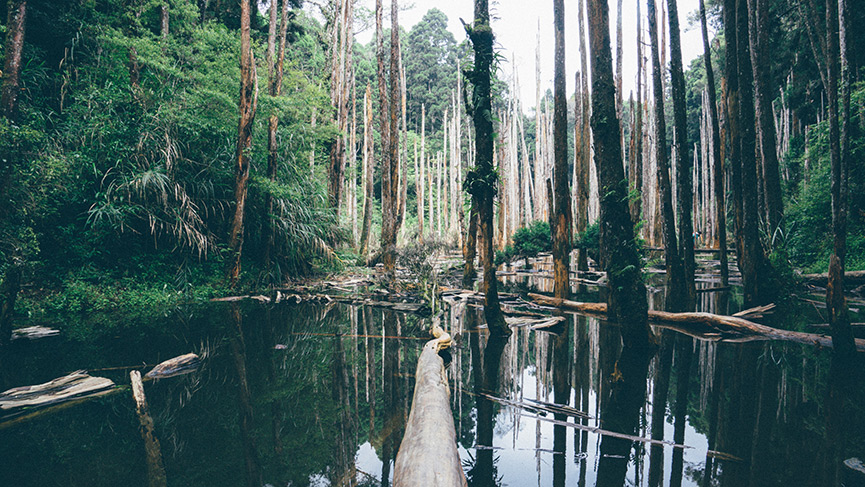For our Common Home

International
Recently, the Anglophone sector held a workshop for the Development and Peace—Caritas Canada Share Lent Campaign. This Lent, the theme is For our Common Home, a campaign that focuses on the crisis in the Amazon region.
Written by Chris Voss and Kim Piché
Canadian Catholics are being encouraged to support all those in the Amazon and the Global South who are caring for God’s creation. The formation consisted of four parts. First, we reviewed some shocking facts about the Amazon through an interactive game. Did you know that the rate at which the Amazon’s rainforest cover is currently being lost is 1–3 soccer fields per minute?
We also learned the role the Canadian economy plays in countries like Brazil, one of the pan-Amazonian countries. In particular, we learned about an Amazon region where a potash mine is being proposed in the rainforest close to land on which indigenous groups have lived for thousands of years. Potash is a soy bean-base protein that is used to feed the massive cattle industry in Brazil. Many acres of the Amazon Rainforest are being destroyed daily to make room for cattle in order to export meat to other regions of the world. We were all dismayed to hear that a Canadian company is helping to finance this potash mine.
The second part of the workshop was a summary of the Synod of bishops for the Pan-Amazon region, a 10-day conference held last October which was initiated at Pope Francis’ request so that the Catholic Church could become an active listener and ally of the peoples struggling to protect their homes in the Amazon.
A discussion on the spirituality of giving made up the third part of the training. One of the principles that stood out from this discussion was based on a quote from Ambrose of Milan, Doctor of the Church of the 4th century, “It is not from your own goods that you give to the beggar; it is a portion of his own that you are restoring to him. The spirituality of giving means that all our material wealth is not really ours and is to be shared since we are all created equal before God.
The highlight of the day was a “Tableau” exercise. It was an activity that helped transform what we learned into a concrete experience. Through the activity, people came to know what it might be like to be vulnerable, either as a non-human component of nature (the forests) or as a people who exist in the Amazon. We also experienced the affect that a partner agency of Development and Peace has in its empowerment of people to work for justice.
Chris Voss, one of the participants explained the experience, I participated in a "Tableau exercise" during which I held a sign identifying myself as the government of Brazil. Various texts were read explaining each group’s role in a real-life situation in the Amazon region where a potash mine is being proposed in the rainforest close to land on which indigenous groups have lived for thousands of years. It was fun to engage with the rest of the people at the training in this way, and I felt like a gained a better understanding of what the relationship is between the different groups, including Development and Peace, its partners in Brazil, the indigenous group as well as Canadian investors and various governments and corporations.
The training was wrapped up with a review of the resources available to do the campaign in parishes and a lunch. All left with a stronger sense of solidarity with the peoples of the Amazon and all were equipped with the tools to bring awareness to this urgent social justice issue in our world to the English faithful.
You too can assist Development and Peace in the following ways;
1. Online: devp.org/give
2. By phone: 1-888 664-3387
3. By mail: 1425 René-Levesque Blvd W, 3d floor, Montreal, QC, H3G 1T7
Sign the Solidarity Letter addressed to two embattled Brazilian communities at devp.org/act

Comment
Comment
Add new comment